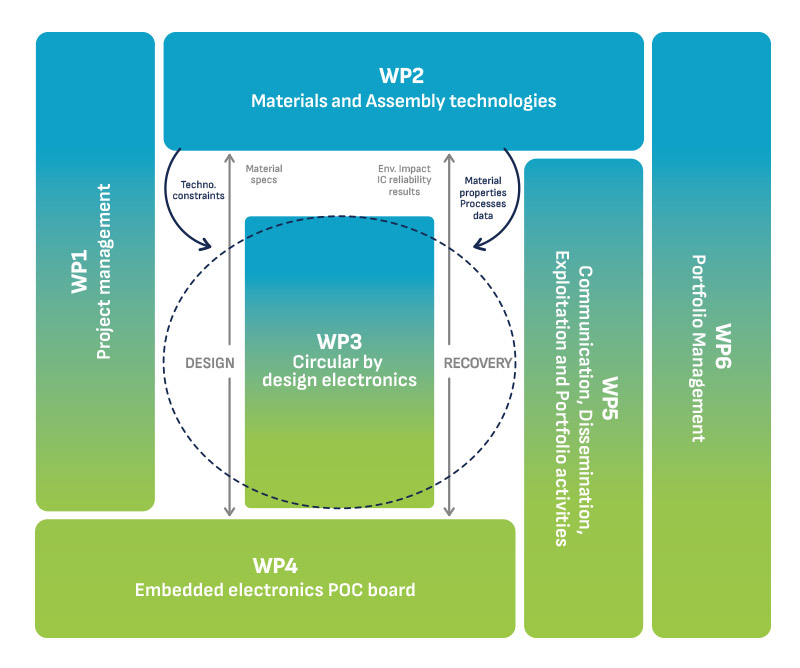Work packages
From materials and techniques all through a tangible proof of concept

Key Challenges:
- Balancing sustainability with performance to ensure that the new substrates can compete with traditional materials in terms of electrical, thermal, and mechanical properties.
- Ensuring that the newly developed substrates and assembly technologies are compatible with existing production lines, minimizing the need for costly retooling or process changes.
- Managing the cost-effectiveness of the new materials, ensuring that sustainability goals are met without imposing excessive costs on the manufacturing process.
Key Challenges:
- Balancing the need for high performance in PCBs with the requirements for circularity, particularly in the context of critical metal usage and recovery, and sustainable material choices.
- Managing the profitability and scalability of bioleaching techniques for metal recovery, ensuring they can be adopted widely by the electronics recycling industry.
- Incorporating circular economy principles in the value chain thinking about the business model right from the PCB design and manufacturing processes, in order to ensure industry adoption.
Key Challenges:
- Balancing Performance and Sustainability: Ensuring the POC board maintains high performance while incorporating sustainable and bio-based materials without driving up costs or compromising functionality.
- Cost-Effectiveness for Education: Designing the board to be affordable for schools and other educational institutions, which often face budget constraints, while still offering enough features and capabilities to serve as a valuable learning tool.
- Scalability for Industrial Applications: Ensuring that the board is scalable and adaptable enough to meet the rigorous demands of industrial use cases while keeping low manufacturing costs for mass production.
- Community Engagement: Building an active open-source community around the POC board that can contribute to its growth and ensure long-term support and evolution in both educational and industrial fields.


